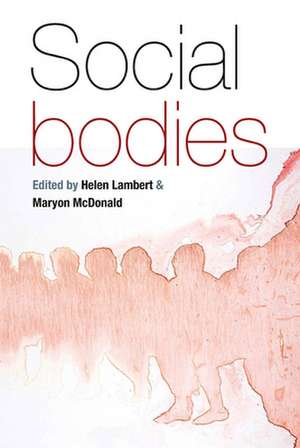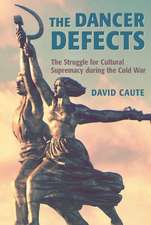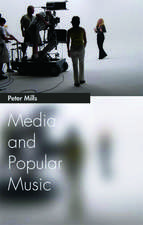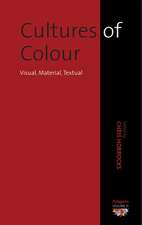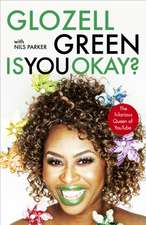Social Bodies
Editat de Helen Lambert, Maryon McDonalden Limba Engleză Paperback – 31 oct 2011
...a tightly conceived and interlinked collection sampling some of the best work in contemporary anthropology on the body... Social Bodies is short but rich. The editorial and chapters interrelate well. As a 'whole', it left me challenged by its ideas and ethnography. Anthropology in Action
A proliferation of press headlines, social science texts and "ethical" concerns about the social implications of recent developments in human genetics and biomedicine have created a sense that, at least in European and American contexts, both the way we treat the human body and our attitudes towards it have changed. This volume asks what really happens to social relations in the face of new types of transaction - such as organ donation, forensic identification and other new medical and reproductive technologies - that involve the use of corporeal material. Drawing on comparative insights into how human biological material is treated, it aims to consider how far human bodies and their components are themselves inherently "social." The case studies - ranging from animal-human transformations in Amazonia to forensic reconstruction in post-conflict Serbia and the treatment of Native American specimens in English museums - all underline that, without social relations, there are no bodies but only "human remains." The volume gives us new and striking ethnographic insights into bodies as sociality, as well as a potentially powerful analytical reconsideration of notions of embodiment. It makes a novel contribution, too, to "science and society" debates.
Helen Lambert is Reader in Medical Anthropology at the University of Bristol, U.K. She has done fieldwork in India and the UK and her research interests include anthropology and public health, HIV, Indian medical traditions, gender and relatedness in South Asia, and notions of evidence. She has numerous publications in the anthropology of India and medical anthropology and is currently working on bonesetters and marginal medicine in India. She contributed the chapter on 'New medical anthropology' to the SAGE Handbook of Social Anthropology (ASA/Sage 2012).
Maryon McDonald is Fellow in Social Anthropology at Robinson College, Cambridge, UK. Her research interests include nationalism and supranationalism, medical anthropology, the EU and questions of accountability; her fieldwork has been conducted in France, in EU institutions, and in the UK. She has published on both the anthropology of Europe and medical anthropology, and has contributed the overview 'Medical Anthropology and Anthropological Studies of Science' to Kockel et al (eds.) A Companion to the Anthropology of Europe (2012, Wiley-Blackwell). She is currently completing a large Leverhulme-funded project examining changing perceptions of 'the body.'
Preț: 221.33 lei
Nou
Puncte Express: 332
Preț estimativ în valută:
42.35€ • 44.33$ • 35.25£
42.35€ • 44.33$ • 35.25£
Carte tipărită la comandă
Livrare economică 31 martie-14 aprilie
Preluare comenzi: 021 569.72.76
Specificații
ISBN-13: 9780857451545
ISBN-10: 0857451545
Pagini: 194
Dimensiuni: 152 x 229 x 11 mm
Greutate: 0.27 kg
Editura: BERGHAHN BOOKS INC
ISBN-10: 0857451545
Pagini: 194
Dimensiuni: 152 x 229 x 11 mm
Greutate: 0.27 kg
Editura: BERGHAHN BOOKS INC
Notă biografică
Cuprins
Introduction Helen Lambert and Maryon McDonald Chapter 1. Aged Bodies and Kinship Matters: The Ethical Field of Kidney Transplant Sharon R. Kaufman, Ann J. Russ and Janet K. Shim Chapter 2. Anatomizing Conflict - Accommodating Human Remains Maja Petrovic-Steger Chapter 3. On the Treatment of Dead Enemies: Indigenous Human Remains in Britain in the Early Twenty-first Century Laura Peers Chapter 4. Towards a Critical Otziography: Inventing Prehistoric Bodies John Robb Chapter 5. Bodies in Perspective: A Critique of the Embodiment Paradigm from the Point of View of Amazonian Ethnography Aparecida Vilaca Chapter 6. Using Bodies to Communicate Marilyn Strathern Notes on Contributors Index
Recenzii
"Social Bodiesand most of its individual contributions are compelling, well written, and thought-provoking. One impressive feature of the book is its juxtaposition of anthropological sub-fields (and related fields) that conceptualize what bodies and their constituent parts are, do, and represent in radically different ways." * JRAI "...a tightly conceived and interlinked collection sampling some of the best work in contemporary anthropology on the body... Social Bodies is short but rich. The editorial and chapters interrelate well. As a 'whole', it left me challenged by its ideas and ethnography." * Anthropology in Action
